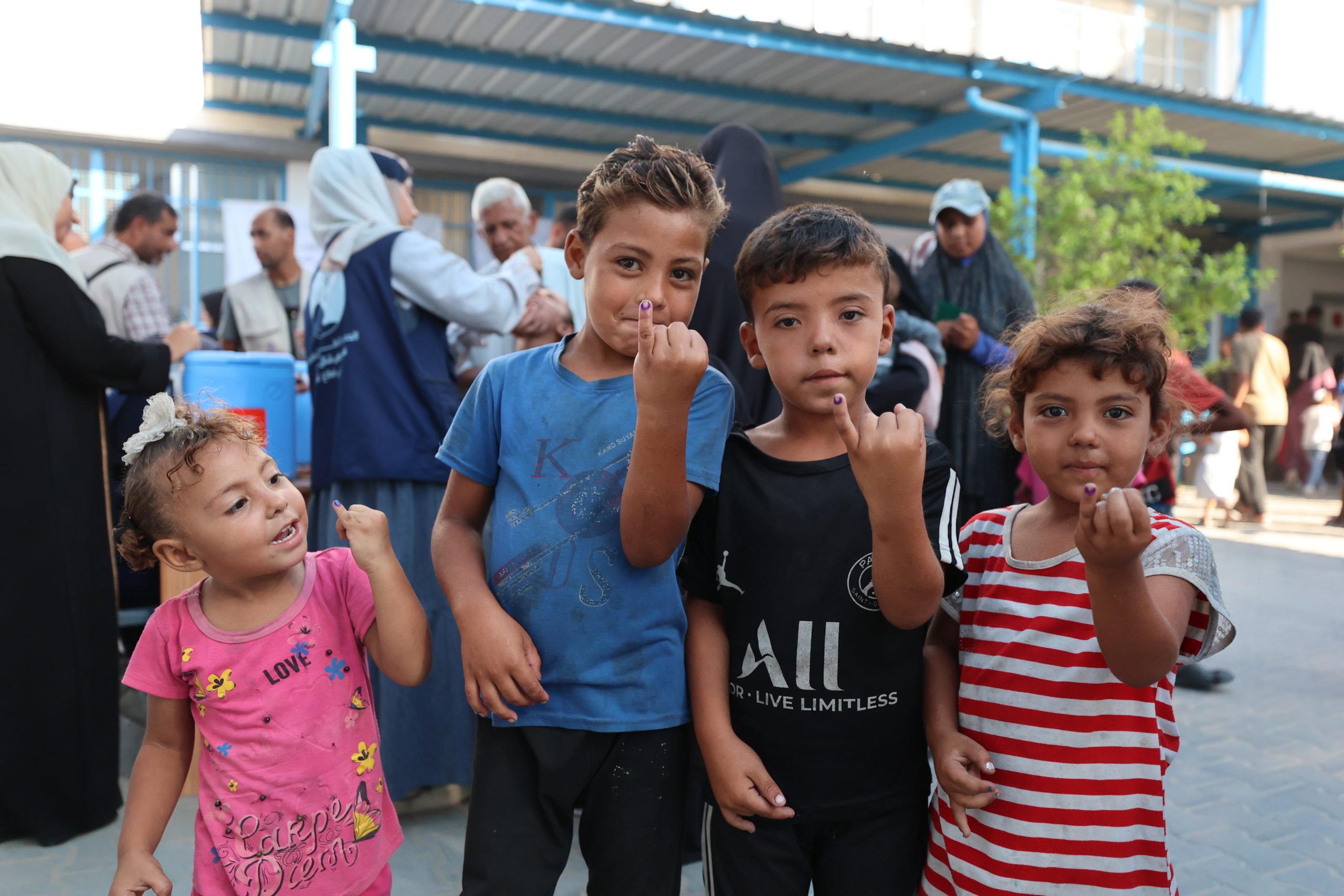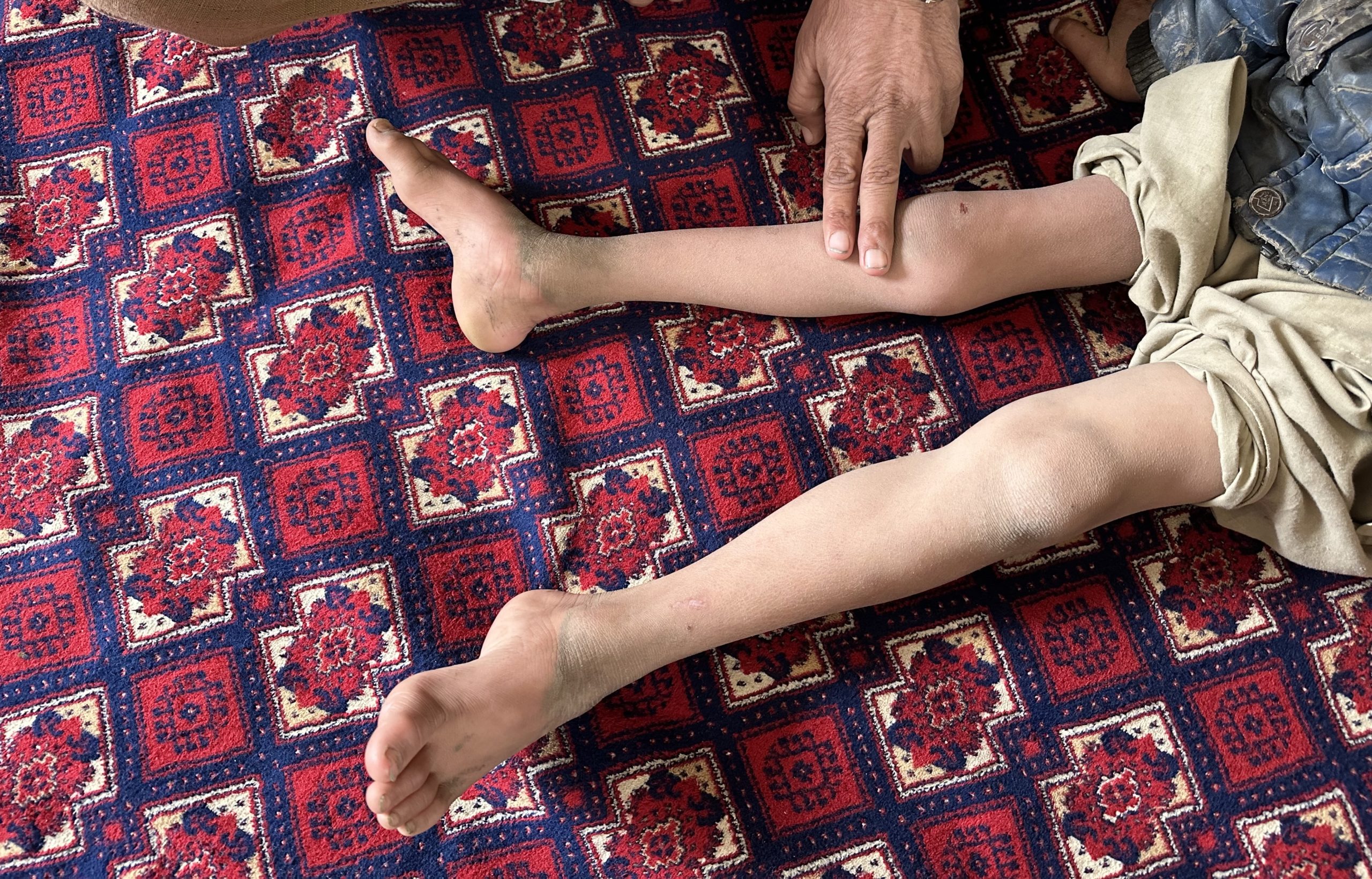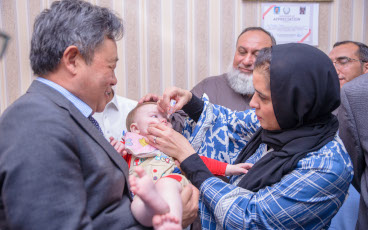FATEHPUR – In Fatehpur, any mention of the month of August is followed by the word ‘qayamat’.
In Urdu, qayamat is used to express what the end of the world would look like. It could be a physical or metaphorical experience and is often used to describe a feeling, a feeling of utter devastation and destruction, when all is reduced to nothingness.
The world really did seem to end for the people here in Fatehpur, Rajanpur district, when the monsoons, once a celebrated time of the year in Pakistan, brought with them the climate’s wrath. Fatehpur was among the 90 calamity-hit districts in the country after the super floods and rains left a third of Pakistan under water and affected one in seven people in the country of over 220 million.
“We only had 25 minutes to leave the house. All I did was lock the door and run with my family after we heard the announcements to evacuate,” says Sughra Javed, a Lady Health Vaccinator, part of the polio immunization campaign.
But locks could provide little protection from the scale of the disaster that was to come. Shahida left for her mother’s house and came back two weeks later, only to find three-feet-deep water all around and the belongings she had gathered for years, old cotton blankets, a TV set, clothes folded in trunks, all gone.
There was little time here to process this loss. Around a week later, the health workers were back on the field serving at health camps that began in late August, nearly 10 days after Rajanpur experienced its worst floods in history.
“I would be working, vaccinating, but it was so difficult to focus. Seeing the broken structure of my house made me want to run away when I was home, and when in the field at work, it was unbearable to see so many people suffering. One after the other, house after house was destroyed,” says Nasreen Faiz, who was among polio team members part of the September campaign.
“My entire village was finished. The crops were gone, the homes were gone, the animals were dead. But at least we had work, I would keep thinking of the people who didn’t even have work,” she adds.
Rajanpur was among districts where the nationwide immunization campaign was suspended as the calamity unfolded. But polio work continued a month after, in between the destroyed cotton crops and cracked land, still too soft to step on.
For Dr. Shahzad Baig, the Coordinator of the National Emergency Operations Centre (NEOC), it was painful to witness his country experience a humanitarian crisis of this scale. “In the Polio Program, we are all part of one large family. When the floods came, it felt like I was sitting at a distance in Islamabad and witnessing my family members suffer. The very first thing I wanted us to do as a program was to find a way to support our people. On every forum, I would request for help to rebuild the homes of our frontline workers.”
The process of assessing the damage was an arduous one. There are over 350,000 health workers part of the program and to identify the people impacted as well as the extent of their loss, was challenging.
Dr Altaf Bosan, the National Technical Focal Person, explains the challenges of determining the impact of the floods with a workforce as large as that of the polio program.
“It was really a very difficult exercise. We went through multiple layers of verification to determine the number of people affected by the floods. This was done at three levels: through the Emergency Operation Centres at the district and province, and the NEOC,” says Dr Bosan.
Through a comprehensive assessment, the Polio Program determined that more than 12,500 polio workers across the country were affected, and funds were secured for the frontline workers who suffered full or partial damage to their homes. In total, cheques worth Rs216 million have been distributed among 10,500 polio workers so far.
On the first working day of the new year, January 2, Mr. Abdul Qadir Patel, the Federal Health Minister handed over cheques to the Provincial Coordinators of the Emergency Operations Centres (EOC). In Sindh, the process was completed at the end of last year following an inauguration by the Health Minister in Thatta district.
“I really commend the team working on it. It really was not an easy task to manage cheques for each individual and deliver them across the country,” Dr Bosan adds.
Nasreen has also received the cheque for financial support as have some of her other colleagues. It is a good time to receive it, she says, because “the winter is too harsh and the need for rebuilding so much greater.”
“I don’t know what can really compensate for their loss, if anything,” says Dr Baig. “Our purpose was to help support as much as we possibly could.”
By Zehra Abid,
Communications Officer, WHO Pakistan



